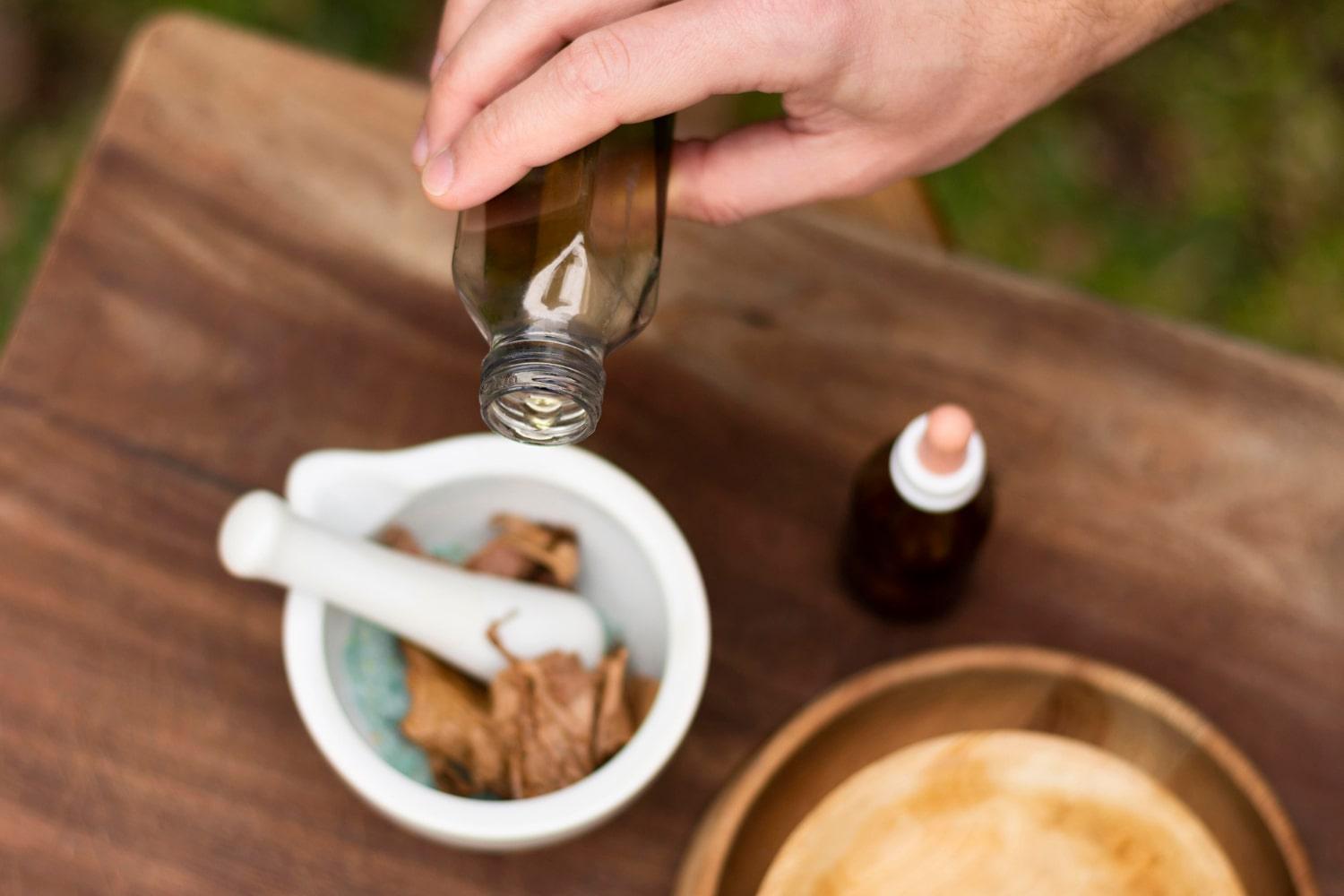Stress can feel like an unwelcome guest that overstays its welcome. In today’s fast-paced world, it’s all too easy to feel overwhelmed. Plant-based remedies can be your secret weapon to combat stress naturally and effectively. Let’s dive into seven powerful options you can start using today to reclaim your calm.
Contents
- Understanding Stress and Its Impact
- 1. Chamomile: The Calming Flower
- 2. Lavender: Nature’s Aromatherapy
- 3. Ashwagandha: The Ancient Adaptogen
- 4. Valerian Root: Your Sleep Ally
- 5. Passionflower: The Natural Tranquilizer
- 6. Rhodiola Rosea: The Resilience Booster
- 7. Turmeric: The Golden Spice
- Incorporating Plant-Based Remedies into Your Routine
- The Bottom Line
- Call to Action
- FAQs
Understanding Stress and Its Impact
Stress isn’t just a feeling; it affects your body, your mind, and your overall well-being. Chronic stress can lead to serious health issues, including anxiety, depression, and even heart disease. Understanding how stress manifests in your life is crucial. That’s why finding natural ways to alleviate it is not just important—it’s essential for living a balanced life.
1. Chamomile: The Calming Flower
Chamomile isn’t just a lovely tea; it’s a powerhouse in the world of stress relief. This gentle flower has been used for centuries to soothe the mind and promote relaxation.
-
Why it works: Chamomile contains antioxidants, and its calming effects come from a compound called apigenin, which binds to certain receptors in your brain, helping to reduce anxiety.
-
How to use it: Brew a cup of chamomile tea before bed, or add dried chamomile to a warm bath for a relaxing soak.
2. Lavender: Nature’s Aromatherapy
The scent of lavender isn’t just delightful; it’s a stress-buster too. Whether you use it in essential oil form or as a dried herb, lavender has proven benefits for reducing anxiety.
-
Why it works: Research shows that lavender can lower cortisol levels—the hormone responsible for stress.
-
How to use it: Diffuse lavender oil in your home, apply diluted oil to your wrists, or use it in a relaxing massage oil. You can even sprinkle dried lavender in your pillowcase for sweeter dreams.
3. Ashwagandha: The Ancient Adaptogen
Ashwagandha is an herb rooted in ancient Indian medicine. It’s known as an adaptogen, meaning it helps your body adapt to stress.
-
Why it works: Studies have shown that ashwagandha can significantly reduce stress and anxiety levels by lowering cortisol.
-
How to use it: You can take ashwagandha in powder form, adding it to smoothies, or as a supplement in capsule form.
4. Valerian Root: Your Sleep Ally
If stress is keeping you up at night, valerian root might just be your new best friend. This herb is renowned for its sedative properties.
-
Why it works: Valerian root increases GABA levels in the brain, which helps promote relaxation and improve sleep quality.
-
How to use it: Brew valerian root tea or take it as a supplement before bedtime.
5. Passionflower: The Natural Tranquilizer
Passionflower is a lesser-known yet incredibly effective herb for managing stress and anxiety.
-
Why it works: This plant boosts GABA levels, helping to calm racing thoughts and reduce feelings of anxiety.
-
How to use it: You can find passionflower in teas or tinctures. Try a cup of passionflower tea in the evening to wind down.
6. Rhodiola Rosea: The Resilience Booster
Rhodiola rosea is an adaptogen that thrives in the Arctic and is known to fight fatigue and boost mental clarity.
-
Why it works: This powerful herb can enhance your body’s resistance to stress and improve mood.
-
How to use it: Look for rhodiola in capsule or powder form, and consider adding it to your morning smoothie for an energizing start to your day.
7. Turmeric: The Golden Spice
Turmeric might be best known for its anti-inflammatory properties, but it’s also a fantastic ally in stress relief.
-
Why it works: Curcumin, the active compound in turmeric, has been shown to reduce symptoms of anxiety and depression by boosting serotonin levels.
-
How to use it: Incorporate turmeric into your cooking, enjoy golden milk, or take a high-quality curcumin supplement.
Incorporating Plant-Based Remedies into Your Routine
Integrating these remedies into your daily life doesn’t have to be complicated. Here are some practical tips:
- Morning Ritual: Start your day with a soothing chamomile or turmeric latte.
- Afternoon Pick-Me-Up: Sip on passionflower tea when you feel the midday slump.
- Evening Wind Down: Create a bedtime routine with lavender and valerian root to promote restful sleep.
The Bottom Line
Finding effective ways to manage stress is not just beneficial; it’s a necessity for a healthy, fulfilling life. Plant-based remedies offer a natural, holistic approach to combatting stress. By incorporating these powerful herbs into your routine, you can reclaim your peace and enhance your overall well-being.
Call to Action
Ready to crush your stress? Try one or more of these plant-based remedies today. Embrace the calming power of nature, and watch how it transforms your life.
FAQs
1. Are plant-based remedies safe for everyone?
While many are safe, it’s always wise to consult with a healthcare provider before starting any new supplement, especially if you have underlying health conditions or are pregnant.
2. How long does it take to see results?
Results can vary; some may feel effects quickly, while others may need to use a remedy consistently for a few weeks.
3. Can I combine these remedies?
Yes, many of these herbs can complement each other. For example, chamomile and lavender tea can be a delightful evening blend to help you relax.
Embrace these plant-based remedies, and let nature help you pave the way to a stress-free life.
Get Your FREE Natural Health Guide!
Subscribe now and receive our exclusive ebook packed with natural health tips, practical wellness advice, and easy lifestyle changes, delivered straight to your inbox.




